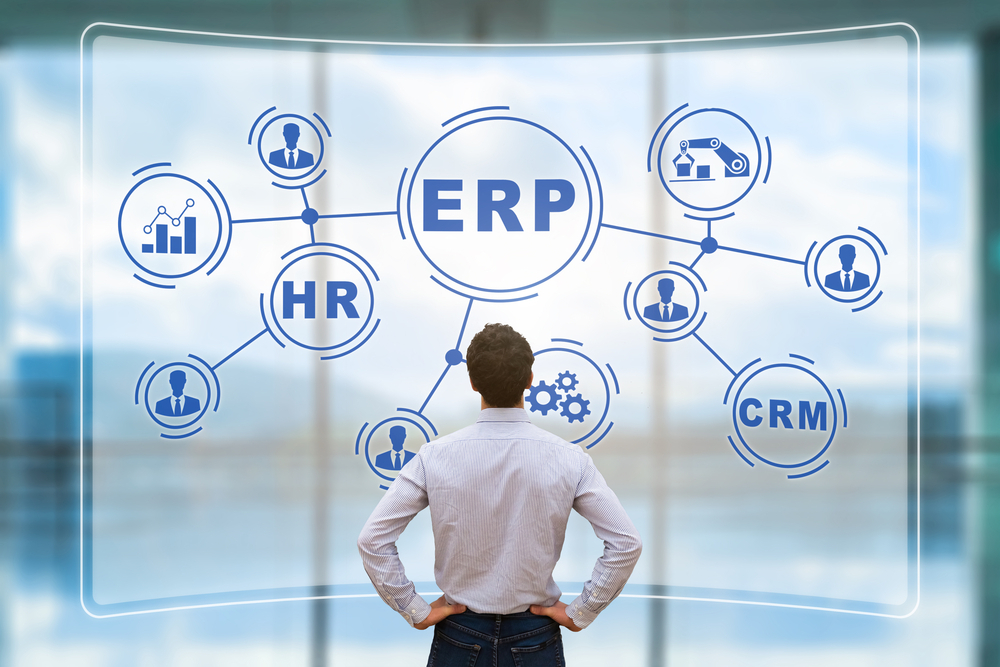Managing tasks across multiple systems can be a great challenge. That’s where Enterprise Resource Planning (ERP) systems come into play. These software solutions are designed to streamline and optimize various business functions, making them essential for organizations of all sizes. In this article, we will explore the top 10 ERP systems that are expected to dominate the market in 2024.
What is an ERP System? At its core, an ERP system is a method that businesses use to make their operations more efficient and productive. Traditionally, companies would try to improve by combining their internal data. However, ERP software has revolutionized this process by integrating different systems into one cohesive platform. This approach relies heavily on data and aims to enhance various business functions.
An ERP system consists of a central database that all parts of a company can access. Instead of having separate programs for different departments like sales or inventory management, ERP brings all this information together in one place, making things simpler and more organized for employees and leaders managing day-to-day tasks. It’s worth noting that ERP systems are widely used across industries, including manufacturing, healthcare, e-commerce, and nonprofit work.
Advantages of Having an ERP System
Implementing an ERP system offers numerous benefits to businesses. Let’s take a closer look at some of the key advantages:
Increased Productivity: By automating business tasks, employees can do more with fewer resources, boosting overall productivity.
Easy Reporting: ERP systems simplify reporting processes, allowing for quick data-driven decisions to enhance performance.
Higher Accuracy: Centralizing data management reduces errors, ensuring consistency in cross-departmental reports.
Simplified Compliance: ERP automates compliance tasks and provides real-time status updates, making it easier to adapt to new regulations.
Improved Agility: Access to real-time data enables businesses to identify and act on opportunities swiftly, staying ahead of the competition.
Enhanced Collaboration: Departments can easily share data, promoting collaboration and ensuring everyone is informed about company activities.
Scalability and Integration: ERP systems support new software, solve compatibility issues, and integrate with various systems like MRP, POS, SCM, and CRM, allowing seamless expansion and growth.
Factors to Consider When Choosing an ERP System
Selecting the right ERP system for your organization is crucial for its success. Here are some factors to consider during the decision-making process:
1. Core Features
Before making a decision, it’s important to evaluate the core features of an ERP system. Consider how well it integrates with various departments like HR, IT, accounting, and CRM, as this will streamline workflows and improve overall efficiency. Additionally, look for features such as automation, reporting and analytics, and robust security measures.
2. Types of ERP Systems
ERP systems come in different types, including on-premise, cloud-based, and hybrid solutions. On-premise systems are installed on organization-owned servers and offer customization options. Cloud-based systems are hosted on remote servers, making them cost-effective and easy to maintain. Hybrid solutions combine on-premise and cloud-based features, allowing businesses to balance costs and specific needs.3. ERP System Cost
The cost of an ERP system can vary significantly, depending on factors such as customization, the number of users, and required modules. Consider your budget and evaluate different pricing models, including license-based, flat monthly or annual fees, and per-user costs. It’s also important to factor in implementation, training, and maintenance fees when considering the overall cost.
4. Demo and Implementation Considerations
Request a demo from ERP vendors to get a better understanding of how their system works and if it meets your specific requirements. During the demo, provide sample data and business requirements to evaluate the system’s capabilities effectively. Additionally, consider the time, cost, and resources needed for implementation. Complex software and large business models may require a longer implementation period and the assistance of an implementation consultant.
Top 10 ERP Systems in 2024
Now that we have a better understanding of ERP systems and the factors to consider when choosing one, let’s explore the top 10 ERP systems that are expected to dominate the market in 2024.
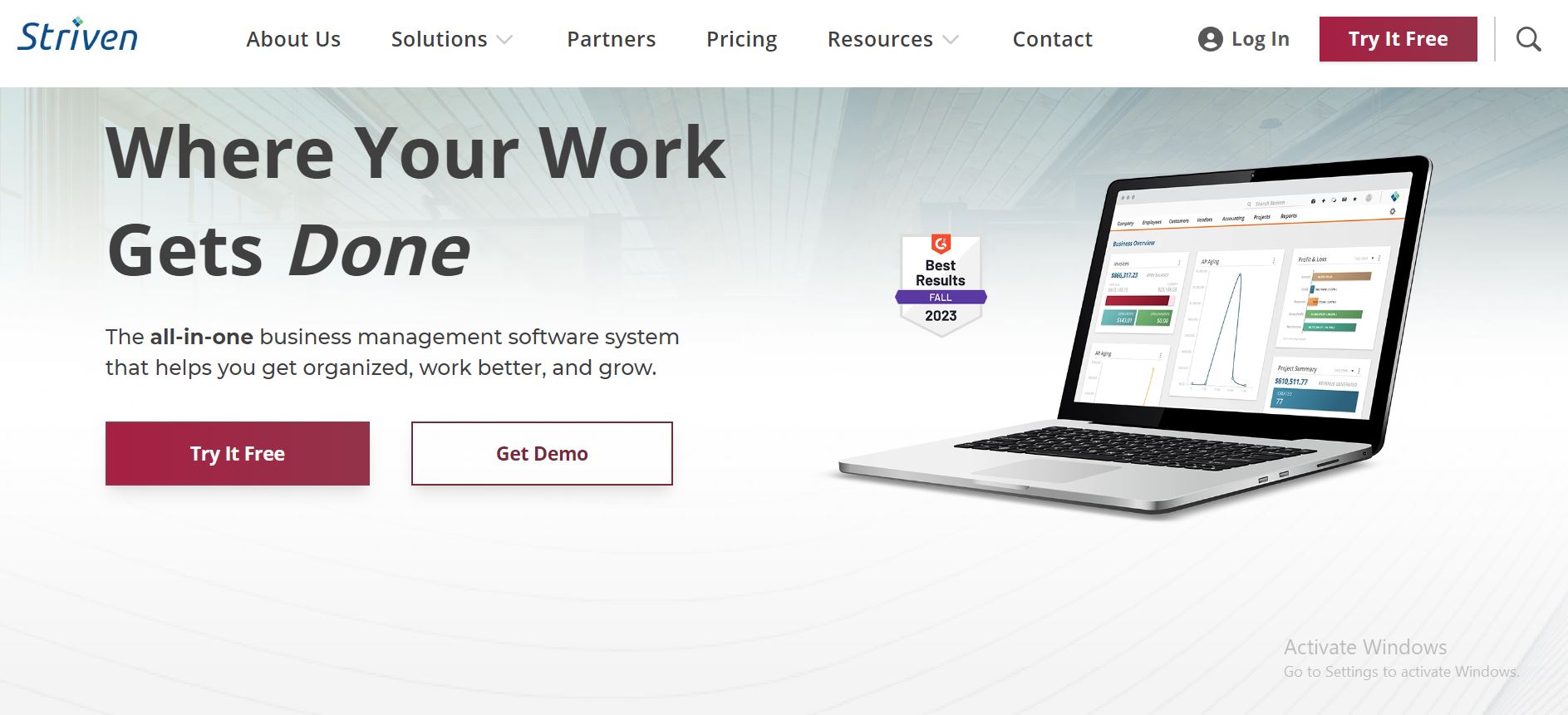
Striven ERP stands out as a comprehensive solution designed to simplify and enhance various facets of your operations. Striven goes beyond the conventional, offering a centralized platform that seamlessly integrates finance, human resources, and project management. Its user-friendly interface and intuitive design make it easy for businesses to navigate complex processes, fostering efficiency and informed decision-making. Whether you’re a small start-up or an established enterprise, Striven ERP provides the tools to streamline your workflows, ultimately paving the way for smoother operations and sustained growth. Explore the possibilities with Striven, where simplicity meets effectiveness in managing the core elements of your business.
Oracle NetSuite:
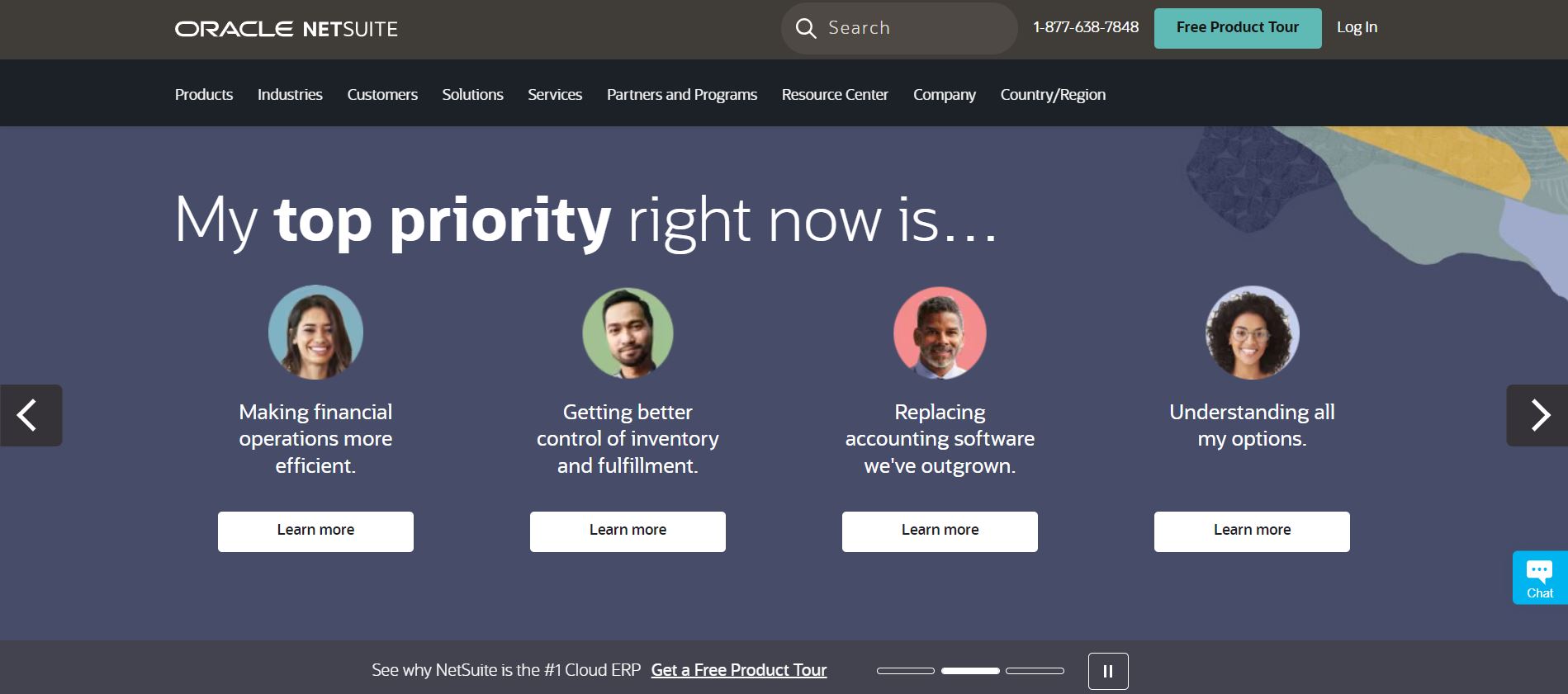
Renowned for its cloud-based ERP, Oracle NetSuite stands out for its scalability and flexibility. With a unified suite covering ERP, CRM, and e-commerce, NetSuite empowers businesses to adapt to changing market dynamics seamlessly.
Microsoft Dynamics 365:
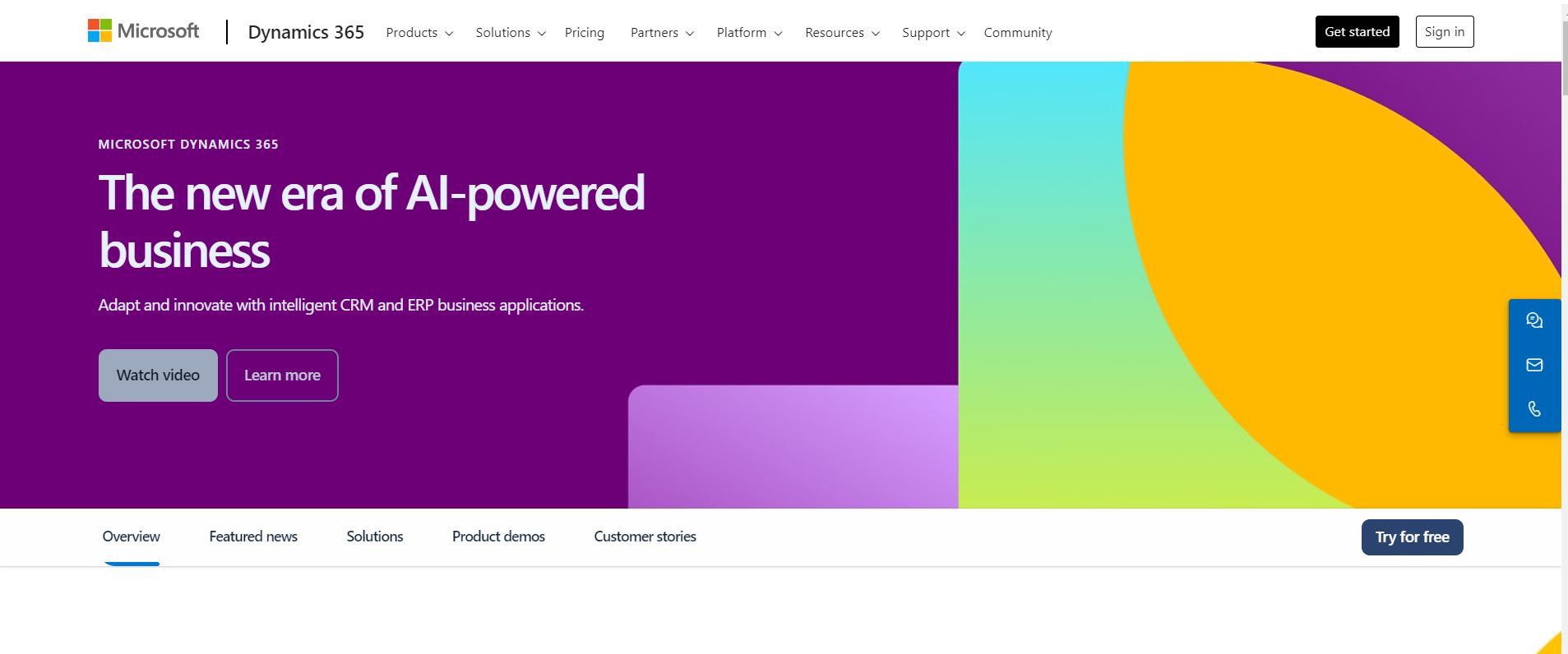
Microsoft Dynamics 365 integrates ERP and CRM functionalities seamlessly, providing a unified platform for end-to-end business management. The solution’s cloud-based approach and AI-driven insights contribute to its widespread adoption.
Infor CloudSuite:
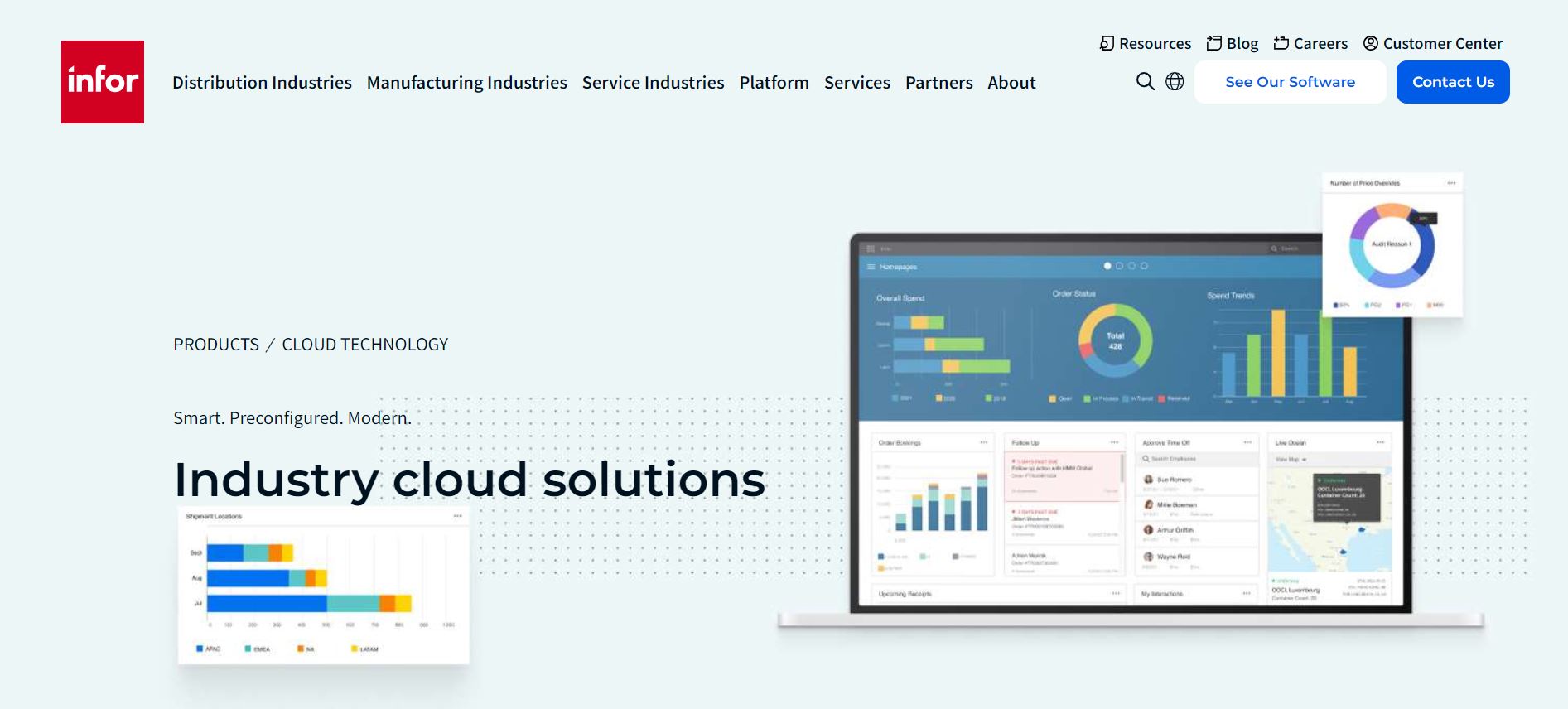
Infor CloudSuite caters to specific industry needs, delivering tailored ERP solutions. With a focus on user experience and industry-specific functionality, Infor CloudSuite is a favorite among businesses aiming for precision in their operations.
Epicor ERP:

Epicor ERP stands out for its commitment to fostering business growth. Offering industry-specific solutions, Epicor ERP leverages emerging technologies like IoT and AI to enhance operational efficiency and customer satisfaction.
Acumatica:

Acumatica’s cloud-native ERP solution stands out for its flexibility and adaptability. With unlimited user licensing and a robust suite of applications, Acumatica empowers businesses to scale without constraints.
IFS Applications:
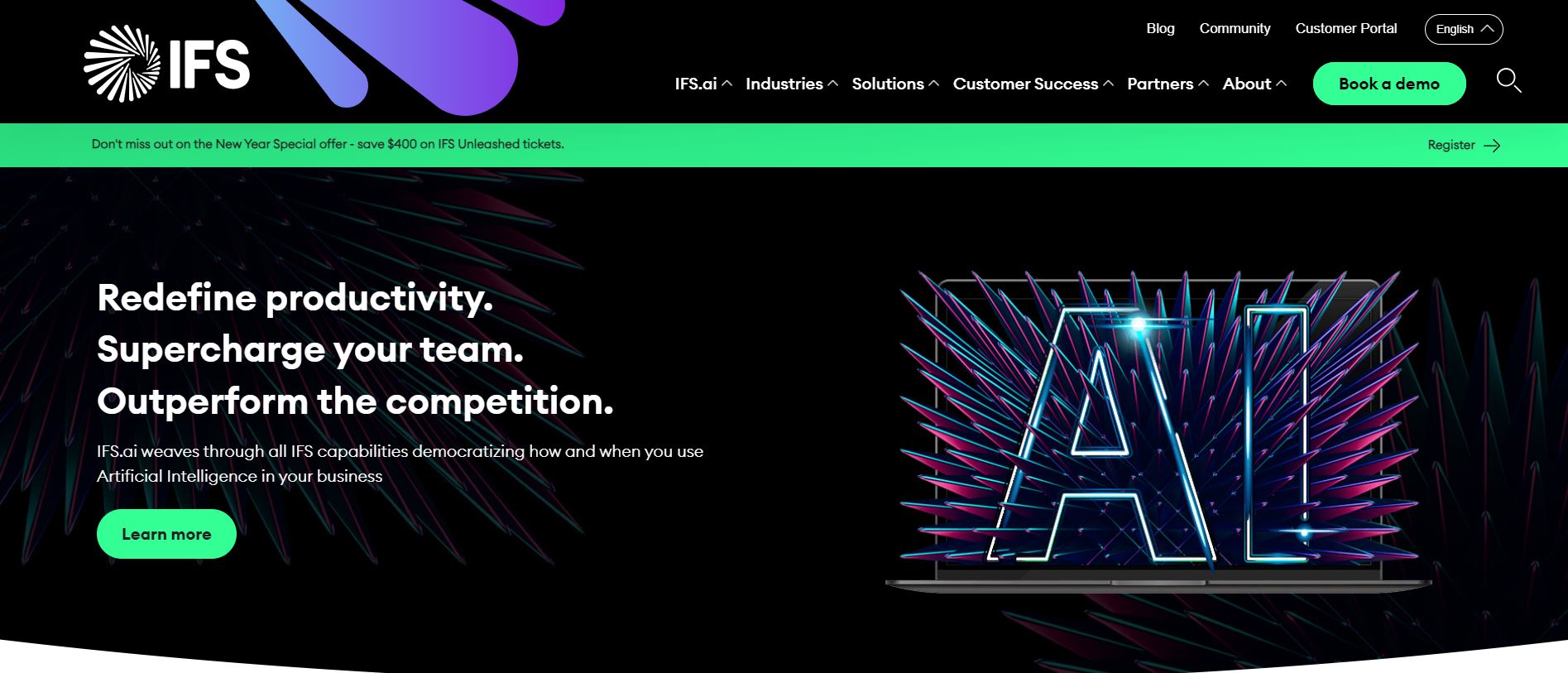
IFS Applications focuses on enhancing enterprise performance with its modular and flexible ERP solution. Recognized for its agility and ability to support complex business processes, IFS Applications caters to a diverse range of industries.
Workday Financial Management:

Workday Financial Management excels in simplifying financial processes. With a user-friendly interface and advanced financial reporting, Workday helps organizations manage their finances effectively while staying compliant.
Syspro:

Syspro is a standout choice for manufacturing and distribution industries. Its ERP solution is tailored to address the unique challenges of these sectors, offering features like supply chain management and inventory control.
Sage Intacct:

Sage Intacct redefines cloud financials with its scalable and flexible ERP solution. Designed for growing businesses, Sage Intacct provides robust financial management capabilities while ensuring compliance and visibility.
Conclusion
Implementing an ERP system can significantly enhance the efficiency, productivity, and overall performance of a business. By centralizing data management, automating tasks, and providing real-time insights, ERP systems empower organizations to make informed decisions and stay ahead of the competition. The top 10 ERP systems in 2024 offer a wide range of features, integrations, and pricing options to cater to the unique needs of different businesses. When choosing an ERP system, it’s crucial to consider factors such as core features, types of systems, cost, and implementation considerations. With proper research and evaluation, organizations can find the best ERP system that aligns with their goals and drives success in the ever-evolving business landscape.
